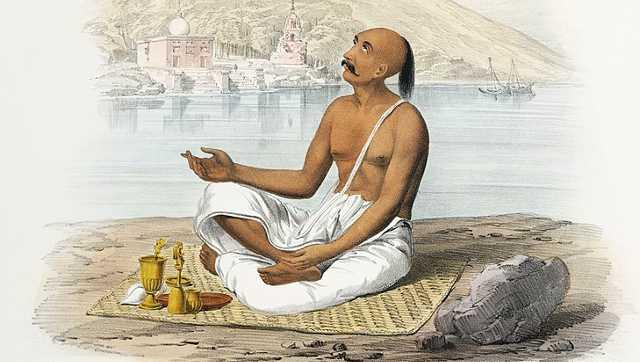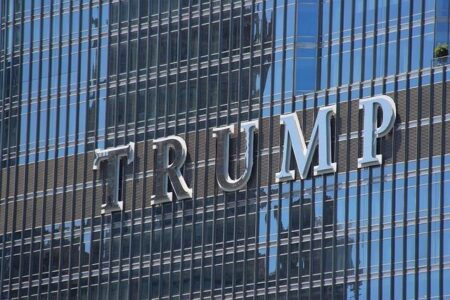In a fresh salvo targeting India’s handling of Russian oil imports, Donald Trump’s trade adviser has sparked controversy by accusing Indian business elites, specifically “Brahmins,” of profiteering amid ongoing geopolitical tensions. The latest remarks, viewed by many as both provocative and divisive, come amid heightened scrutiny of India’s energy dealings and its delicate balancing act between Western sanctions and energy security. This article delves into the adviser’s comments, the context surrounding India’s oil trade with Russia, and the broader implications on diplomatic and economic relations.
Brahmins Profiteering Remark Sparks Diplomatic Tensions Between US and India
In a controversial statement that has caught the attention of diplomatic circles, Donald Trump’s trade adviser sparked outrage by using the phrase “Brahmins profiteering” to describe India’s dealings concerning Russian oil imports. This remark was perceived as both culturally insensitive and politically charged, escalating tensions between the United States and India at a crucial time when both nations are navigating complex energy and geopolitical landscapes. The comment not only drew sharp rebukes from Indian officials but also ignited debates on social media about the implications of such rhetoric on bilateral trade relations.
Amidst the backlash, the trade adviser defended his stance by emphasizing the need for transparent trade practices and argued that sanctions on Russia should not be circumvented through indirect purchases. The dispute highlights critical points of contention, including:
- Sanctions Enforcement: Varying interpretations between Washington and New Delhi.
- Energy Security: India’s strategic interest in securing affordable oil supplies.
- Diplomatic Sensitivities: Cultural references that strain bilateral dialogue.
| Issue | US Perspective | India’s Standpoint |
|---|---|---|
| Russian Oil Imports | Undermines sanctions, risks geopolitical fallout | Necessary for energy demands and economic stability |
| Trade Communication | Calls for clearer compliance measures | Demands respect for sovereignty and cultural sensitivity |
| Diplomatic Relations | Concerned over public comments’ impact | Seeks mitigation of misunderstandings through dialogue |
Analyzing the Impact of Trade Adviser’s Criticism on Indo-US Energy Relations
The recent sharp remarks by Donald Trump’s trade adviser, labeling certain Indian stakeholders as “Brahmins profiteering” from Russian oil imports, have ignited a fresh wave of tension in Indo-US energy relations. This criticism comes at a critical juncture when both nations are navigating complex geopolitical landscapes shaped by energy security concerns and economic diplomacy. India’s decision to continue purchasing discounted Russian crude amid Western sanctions has drawn ire, highlighting emerging fault lines in the strategic partnership. The adviser’s comments suggest a deeper frustration with India’s balancing act between maintaining energy stability and aligning with US-led global sanctions.
Key repercussions of this rhetoric may include:
- Strained diplomatic engagements over energy policy coherence
- Potential recalibration of US energy aid and technology collaborations
- Heightened scrutiny on India’s third-party trade mechanisms with Russia
| Aspect | Potential Impact |
|---|---|
| Diplomatic Dialogue | Reduced openness on energy negotiations |
| Energy Investments | Delays in bilateral project approvals |
| Trade Relations | Increased tariff and market access challenges |
With the US emphasizing the importance of a unified stance against Russia, such confrontational language risks overshadowing the broader strategic vision shared between the two democracies. Analysts point out that while the adviser’s criticism is aimed at enforcing accountability, it could inadvertently harden India’s resolve to diversify its energy sources on its own terms. The evolving dialogue will require delicate diplomacy to ensure that energy cooperation remains a cornerstone rather than a casualty in the Indo-US partnership.
Experts Recommend Strengthening Communication Channels to Mitigate Political Fallout
In light of escalating tensions following controversial statements, experts stress the urgency of fortifying diplomatic dialogue to prevent further political deterioration between the involved nations. Establishing robust communication frameworks can play a pivotal role in clarifying misunderstandings and facilitating mutual respect amid disputes. Analysts suggest that sustained engagement through multiple channels-ranging from formal diplomatic meetings to back-channel talks-could mitigate the risk of prolonged fallout and preserve strategic partnerships.
Key recommendations include:
- Launching dedicated bilateral communication platforms for real-time issue resolution
- Enhancing cultural exchange programs to build trust and reduce stereotyping
- Engaging independent mediators to oversee sensitive trade negotiations
- Implementing joint task forces addressing economic and geopolitical concerns
| Communication Channel | Purpose | Expected Outcome |
|---|---|---|
| Diplomatic Envoys | Facilitate direct government-to-government talks | Clarified bilateral positions |
| Back-Channel Diplomacy | Address sensitive issues confidentially | Reduced public tensions |
| Cultural Exchanges | Promote mutual understanding | Long-term trust building |
| Media Briefings | Manage public narratives and misinformation | Informed public opinion |
The Conclusion
As tensions continue to simmer over oil trade dynamics and geopolitical alliances, the latest remarks by Donald Trump’s trade adviser have added a new layer of controversy to the already complex India-Russia-US relationship. While India navigates the balancing act of energy security and diplomatic ties, the international spotlight remains firmly fixed on how these evolving narratives will shape future trade and strategic engagements. Observers will be watching closely as both nations respond to these jabs in the coming weeks.




